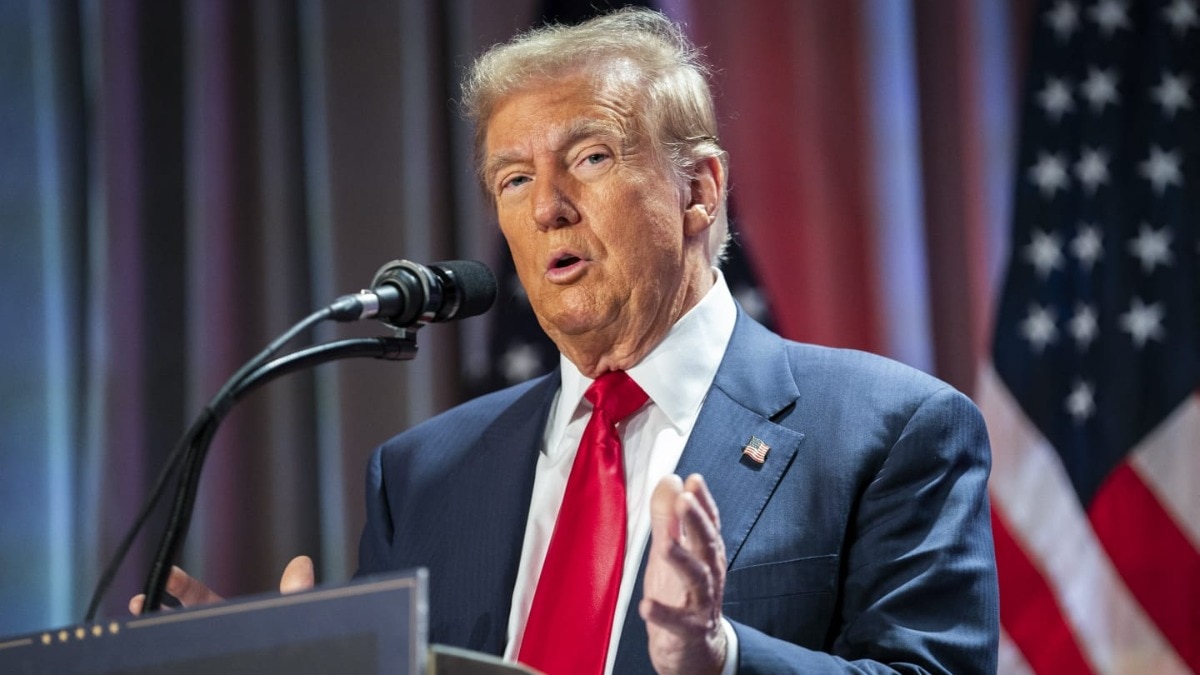2024-11-26 02:53:11
President-elect Donald Trump on Monday pledged big tariffs on the United States’ three largest trading partners – Canada, Mexico and China – detailing how he will implement campaign promises that could trigger trade wars.
Trump, who takes office on January 20, 2025, said he would impose a 25% tariff on Canada and Mexico until they clamp down on drugs, particularly fentanyl, and migrants crossing the border, in a move that would appear to violate a free-trade deal.
Trump also outlined “an additional 10% tariff, above any additional tariffs” on China, in some of his most specific comments on how he will implement his economic agenda since winning the November 5 election on promises to “put America first”.
“On January 20th, as one of my many first Executive Orders, I will sign all necessary documents to charge Mexico and Canada a 25% Tariff on ALL products coming into the United States, and its ridiculous Open Borders,” he said in a post on Truth Social.
While migrant arrests reached a record during President Joe Biden’s presidency, straining US border enforcement, illegal crossings fell dramatically this year as Biden instituted new border restrictions and Mexico stepped up enforcement.
More than 83% of exports from Mexico went to the US in 2023 and 75% of Canadian exports go to the country.
Trump’s threatened new tariff would appear to violate the terms of the US-Mexico-Canada Agreement on trade. The deal which Trump signed into law took effect in 2020, and continued the largely duty-free trade between the three countries.
Mexico’s finance ministry said: “Mexico is the United States’ top trade partner, and the USMCA provides a framework of certainty for national and international investors.”
The office of Canadian Prime Minister Justin Trudeau and the Canadian foreign ministry did not immediately respond to requests for comment.
Canada and the United States at one point imposed sanctions on each others’ products during the rancorous talks that eventually led to USMCA.
CHINA: NO ONE WINS TRADE WARS
On China, the president-elect accused Beijing of not taking strong enough action to stop the flow of illicit drugs crossing the border into the U.S. from Mexico.
“Until such time as they stop, we will be charging China an additional 10% Tariff, above any additional Tariffs, on all of their many products coming into the United States of America,” Trump said.
A Chinese embassy spokesperson in Washington hit back.
“China believes that China-U.S. economic and trade cooperation is mutually beneficial in nature. No one will win a trade war or a tariff war,” Liu Pengyu said.
The embassy also cited steps it said China had taken since a 2023 U.S.-China meeting after which Beijing agreed it would stem the export of items related to the production of the opioid fentanyl, a leading cause of drug overdoses in the United States.
“All these prove that the idea of China knowingly allowing fentanyl precursors to flow into the United States runs completely counter to facts and reality,” the spokesperson said.
Trump has previously pledged to end China’s most-favored-nation trading status and slap tariffs on Chinese imports in excess of 60% – much higher than those imposed during his first term.
The Chinese economy is now in a much more vulnerable position given the country’s prolonged property downturn, debt risks and weak domestic demand.
In the run-up to the Nov. 5 election, Trump floated plans for blanket tariffs of 10% to 20% on virtually all imports. He also said he would put tariffs as high as 200% on every car coming across the U.S.-Mexico border.
He also voiced his intent to formally invoke the USMCA’s six-year review provision upon taking office. Currently, it is expected in July 2026.
Economists say that Trump’s overall tariff plans, likely his most consequential economic policy, would push U.S. import duty rates back up to 1930s-era levels, stoke inflation, collapse U.S.-China trade, draw retaliation and drastically reorder supply chains.
They say tariffs are paid by the companies that import the products subject to the duties, and they either pass on the costs to consumers or accept lower profits.
Trump frequently refers to countries paying as a consequence of his tariff plan, saying on Monday that Mexico and Canada will “pay a very big price.”
Tune In
donald trump, trump imposes tariff for china, trump tariff on mexico, Donald trump tariff on canada, us new tariff on Canada Mexico china
Source link
![]()
